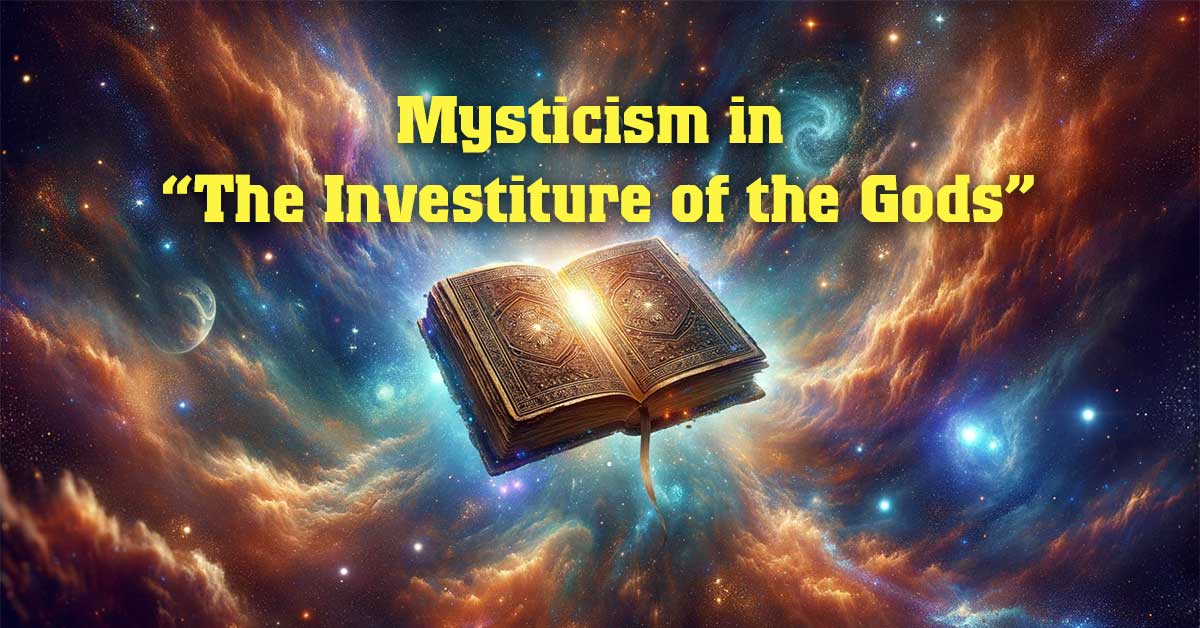In the seventh year of King Zhou’s reign, during the Shang Dynasty, a rebellion erupted in the vassal states of the North. Consequently, Grand Tutor Wen Zhong was dispatched to the war front. With Wen Zhong absent, his absence provided an opportunity for the two minions, Fei Zhong and You Hun, to draw close to the King.
One day, Prime Minister Shang Rong suggested to King Zhou, “Tomorrow marks the commemorative celebration of Goddess Nu Wa. Your Majesty should visit her temple and seek her blessings.” Intrigued, King Zhou inquired, “Who is Goddess Nu Wa, and why should a great king such as myself visit her temple?” Shang Rong explained, “Goddess Nu Wa is King Fuxi’s younger sister, renowned for her divine power. Legend has it that she once mended the broken sky using multicolored stones, rendering invaluable service to the people. As a result, temples were erected in her honor by past dynasties. Wherever these temples stood, favorable weather conditions prevailed, bringing peace, health, and prosperity to the land.” Moved by Shang Rong’s words, King Zhou heeded his advice.
The following day, King Zhou embarked on the journey to the Temple of Goddess Nu Wa, accompanied by a retinue of officers. Upon arrival, he reverently placed an incense burner in the main hall, and together with his officers, knelt and bowed in worship. The temple was adorned with precious ceremonial items, and the swirling incense smoke created a solemn atmosphere reminiscent of a royal shrine.
Suddenly, a gentle breeze swept through the temple, parting the curtains and revealing the statue of Goddess Nu Wa in all her celestial beauty.
Captivated by her lifelike presence, King Zhou stood transfixed for a moment before instructing the Imperial guards to fetch him a pen and ink. He then composed the following poem on the temple wall:
In the temple’s chill, where Phoenix curtains cascade,
I hail the creator of this beauty so fine,
With brows like willows in their winding grace,
And robes, a sea stirred by the breath of time.
Like pear blossoms, kissed by morning dew’s light,
Or peonies, bathed in the softest rain’s embrace,
Her radiance outshines the dawn’s first light,
If only her statue could awaken and grace.
I’d bring her to my palace, without delay,
And let her lean against my divine self, I’d say.
This poem startled and unsettled Prime Minister Shang Rong, as he viewed it as sacrilegious. He advised the king to remove it, but his counsel fell on deaf ears, with all other officials remaining silent. They subsequently escorted the King back to the capital.
Meanwhile, Goddess Nu Wa had been paying homage to the three Saints: Fu Xi, Shen Nong, and Huang Ti. Upon her return to her temple, she was furious upon seeing the poem and unleashed a tirade: “Ignorant and foolish tyrant! Why do you not govern wisely instead of composing such blasphemies? How dare you defy the laws of Heaven! If I do not punish you now, how can my authority be upheld?”
Enraged, she swiftly rode on the clouds to the King’s palace with the intent to kill him. However, upon arrival, she encountered two red beams rising from the back of the palace, blocking her path. Realizing that King Zhou still had another twenty-eight years to live, she retreated to her temple.
Upon her return, Goddess Nu Wa instructed her disciple Shi Yun to fetch the Demon Summoning Pennant, a multicolored flag used to call forth goblins and sprites into her service. When the Pennant appeared, goblins and sprites from across the world gathered to receive her command. Among them, Goddess Nu Wa selected three sprites dwelling in the grave of Emperor Huang Ti. The first was a thousand-year-old fox, the second a female pheasant with nine heads, and the third a jade lute.
Addressing them, Goddess Nu Wa declared, “King Zhou is on the brink of losing his kingdom. The phoenix’s song on Mount Qi foretold the rise of a new ruler in West Qi. This is decreed by Heaven, and no one can alter its course. Transform yourselves into beautiful beings and go to the palace to divert King Zhou’s attention from state affairs. I will elevate you to the status of gods for aiding the new Dynasty and hastening the downfall of the old one. Remember, you must not harm the innocent.” The three demons obeyed and promptly flew away.
Commentary
The notion of a Creator ruling a hierarchy of gods (or gods) has existed throughout many generations and in many populations. People used to believe that any power—human or beast—that can influence the destiny of a population or humanity, comes from the Celestial Spirits (deities, gods, genies, or angels). Since ancient times, we have known of the following various hierarchies of gods: the god of Heaven (Dyaus), the god of the sun (Surgasavitri, Pusan), the god of early morning (Usas), the thunder god (Indra), the water god (Apas), the storm god (Bayu), the rain god (Parjanya) and many others.
There are also sacred animals such as the unicorn (Kylin), tortoise, phoenix, tiger, snake, etc., and even stones, pine trees, or musical instruments (such as a harp) can become gods if they absorb enough of the essence of heaven and earth.
They also consider that righteous Kings are sons of God, mandated by heaven to come down and reign on earth. After their death, they become Saints and reside in Heaven to serve the Creator, i.e. King Fu-Xi, Shen Nong, Saint Tran, etc. Royal officers with eminent records of service or those who have significantly contributed to their people or for humanity in particular, can all become Deities. Goddess Nu Wa exemplifies this belief. Even though they reside in the invisible realm, the Deities continue to exert their influence on human beings. They may help their race or may assume a greater mission, in which part of their duty is to oversee humanity.
Related Post
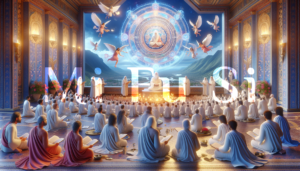
Pros and cons of Old Guru Secret Teaching
Pros and cons of Old Guru Secret Teaching (Lý luận về Mật tông Thiên Đình by Mộc Trúc on Fri...
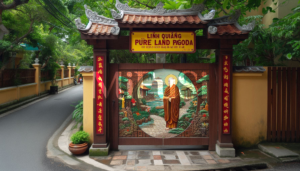
Linh Quang Pure Land Pagoda and Venerable Monk Thích Phổ Ứng.
Article by cư sĩ Triệu Phước on Trắng Đen newspaper in 1992. Translated from Vietnamese to English by Dianichi Linh...
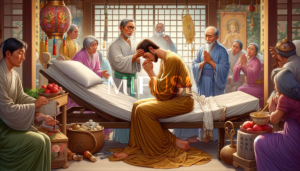
A Miraculous Healing
A Miraculous Healing Ân phước được chữa bệnh posted by brightmoon - 16 Tháng 8 2018, 19:50, translated by Horangi....

Introduction
Introduction Mat Giao (Secret Teachings) is pleased to present to our fellow practitioners the book "Mysticism in "The Investiture of...
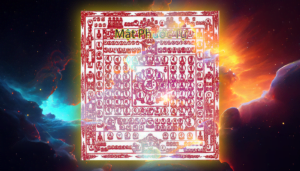
Chapter III: II – Lecture on Dharanis from various Sutras in Secret Buddhism
Apart from the fundamental Mahavairocana and Vajrasekhara Sutras, Buddhist masters who compiled the Tripitaka (three 'baskets' of Sutras on: Doctrine,...
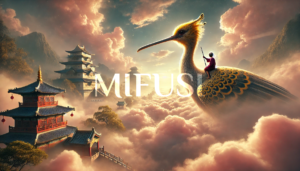
Vision of previous life as a Shinto Priest
Linh ảnh về tiền kiếp là pháp sư by Diep Chau on 16 Aug 2017, 08:24 - translated by ngocxuan,...
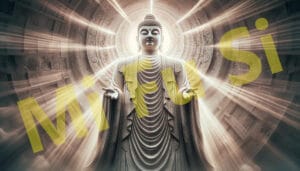
1 – MYSTICAL TALES AND ITS PRINCIPLES OLD-GURU
1 - The story about Dada the monk (not his true name): Dada is a Vietnamese with Cambodia ancestry, the...

Divine Disclosures of Master Duc Quy’s past life
Divine Disclosures of Master Duc Quy's past life by Lĩnhnam on Sat Jun 13, 2009 2:47 pm; translated by Dianichi, edited...
